The Riskline Report
Paris Olympics 2024
Everything you need to know to stay safe and informed in France.
The forthcoming Olympic and Paralympic games will be hosted in venues across Paris and the wider Île-de-France region. This includes Seine-Saint-Denis, which has been designated as the location for the Olympic, Paralympic and Media villages. In addition to these locations, several other cities throughout France, as well as Teahupo’o in Tahiti, will serve as hosts for a range of events including football, handball and surfing.
The official Olympics website allows attendees to calculate the estimated time to move between competition sites. Find out more here.
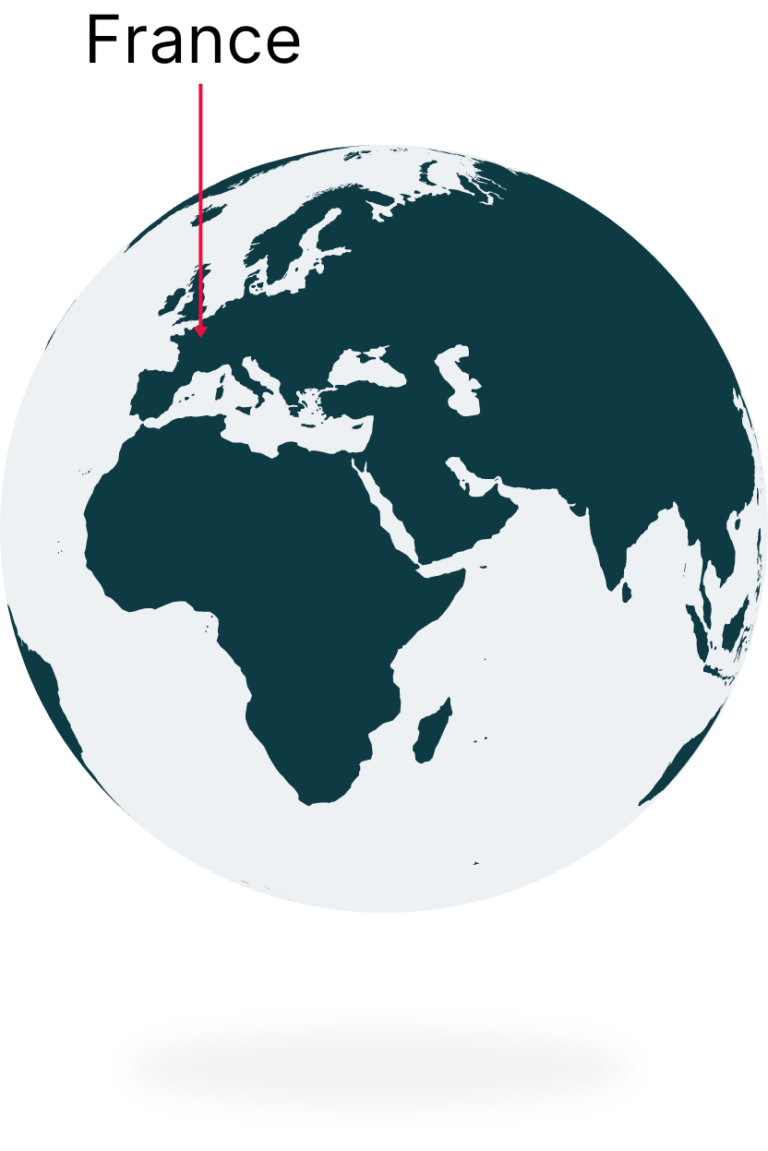
Getting Around
01
Porte de la Chapelle Arena
Location: in Paris’s 18th arrondissement, this environmentally sustainable and universally accessible multi-sports complex will host badminton, rhythmic gymnastics, para badminton and para powerlifting.
Capacity: 6,700 spectators. For rhythmic gymnastics and para powerlifting, the capacity will increase to 7,000 spectators.
Advice:The Porte de la Chapelle Arena will be served by Porte de la Chapelle Station (Metro line 12, Tram line T3b). To avoid overcrowding, spectators are advised to use Rosa Parks Station (RER line E). Spectators are also advised to allow sufficient travel time and to arrive early at the competition site.
02
Grand Palais
Location: in Paris’s 8th arrondissement for the 1900 Exposition Universelle, the historic Grand Palais des Champs-Élysées will host fencing, taekwondo, wheelchair fencing and para taekwondo.
Capacity: 8,000 spectators during the Olympic Games, and 6,500 spectators the Paralympic Games.
Advice:The Grand Palais venue will be served by Franklin D. Roosevelt Station (Metro lines 1 & 9). Exceptionally high passenger numbers are expected on these lines, especially on line 9. Public transport access to competition venues will be disrupted during the Games. In particular, the Champs‑Élysées‑Clemenceau, Concorde and Tuileries metro stations will all be closed. Spectators are advised to allow sufficient travel time and to arrive early at the competition site.
03
Place de la Concorde
Location: The Place de la Concorde will become an open-air venue during the Games. Urban Park will be a showcase for innovative and spectacular sports, such as BMX freestyle, skateboarding, breaking and 3×3 basketball.
Advice:The Place de la Concorde venue will be served by the Palais Royal–Musée du Louvre (Metro lines 1 & 7), Madeleine (Metro lines 8, 12 & 14), Opéra (Metro line 3), Auber (RER line A) and Musée d’Orsay (RER Line C) stations. Spectators are advised to allow sufficient travel time and to arrive early at the competition site.
04
Alexandre III Bridge
Location: The Pont Alexandre III, also built for the 1900 Exposition Universelle, is an artistic monument that connects the Right and Left Banks of the Seine in the heart of Paris and will host marathon swimming, triathlon, road cycling and para triathlon.
Capacity: 1,000 spectators.
Advice: The Pont Alexandre III venue will be served by Invalides Station (RER line C, Metro lines 8 & 13). Spectators are advised to allow sufficient travel time and to arrive early at the competition site.
05
Hôtel de Ville
Location: The Place de l’Hôtel-de-Ville–Esplanade de la Libération will host the athletes attending the legendary long-distance race, the 42.195 kilometre (26.2 miles) marathon.
Advice: The open square will be crowded during the competition. Spectators are advised to allow sufficient travel time and to arrive early at the competition site.
06
Trocadero
Location: Trocadéro will offer an exceptional viewing platform and experience for spectators and television audiences for the triathlon, para triathlon, road cycling, athletics and swimming events.
Capacity: 3,350 spectators.
Advice: The Trocadéro venue will be served by Iéna (Metro line 9), Trocadéro (Metro lines 6 and 9) and Pont de l’Alma (RER line C) stations. Spectators are advised to allow sufficient travel time and to arrive early at the competition site.
07
Bercy Arena
Location: Bercy Arena is an iconic venue for culture and sport in Paris and across France, recognisable by its iconic pyramid design that stands out from the landscape of Paris’s 12th arrondissement, will host basketball and gymnastic competitions.
Capacity: 15,000 spectators.
Advice: The Bercy Arena will be served by Bercy Station (Metro lines 6 & 14) and Paris Gare de Lyon (RER lines A & D, Transilien line R, Metro line 1). Spectators are advised to allow sufficient travel time and to arrive early at the competition site.
08
Invalides
Location: The Esplanade des Invalides is a vast green space in Paris’s 7th arrondissement, located opposite the magnificent Hôtel des Invalides, where it will be the stage for archery, athletics and road cycling events.
Capacity: 8,000 spectators.
Advice: The Invalides venue will be served by Invalides Station (RER line C, Metro lines 8 & 13). Spectators are advised to allow sufficient travel time and to arrive early at the competition site.
09
Paris Expo Porte de Versailles
Location: Built in 1923 for the Paris Trade Fair (Foire de Paris), the complex has been developed extensively over the years and can now host a wide range of events. For the Olympic Games, will be hosting volleyball, table tennis, handball and weightlifting competitions.
Capacity: 12,000 spectators for volleyball; 6,000 spectators for table tennis, handball and weightlifting.
Advice: The Paris Expo Porte de Versailles will be served by the Porte de Versailles (Metro line 12), Balard (Metro line 8), Porte de Vanves (Metro line 13) and Georges Brassens (Tram line T3a) stations. Spectators are advised to allow sufficient travel time and to arrive early at the competition site.
10
Roland-Garros Stadium
Location: Named in memory of famed French aviator Roland Garros, the stadium was built in 1928. Located in Paris, on the edge of the Bois de Boulogne and close to Parc des Princes, the venue will host tennis, boxing and wheelchair tennis matches.
Capacity: The Philippe-Chatrier Court can hold up to 14,962 spectators.
Advice: The Roland-Garros Stadium will be served by Porte de Saint‑Cloud Station (Metro line 9) and Porte d’Auteuil (Metro line 10) stations. Exceptionally high passenger numbers are expected on these metro lines. Spectators are advised to allow sufficient travel time and to arrive early at the competition site.
11
Eiffel Tower Stadium
Location: The Champ-de-Mars, the park located at the foot of the Eiffel Tower in the heart of Paris, will become a temporary outdoor arena for beach volley and blind football.
Capacity: 12,860 spectators.
Advice: The Eiffel Tower Stadium will be served by the Champ de Mars Tour Eiffel (RER line C), Pont de l’Alma (RER line C), Bir Hakeim (Metro line 6) and Alma Marceau (Metro line 9) stations. Spectators are advised to allow sufficient travel time and to arrive early at the competition site.
12
Champ de Mars Arena
Location: The 10,000 square metre Champ de Mars Arena was built in 2021 to host various events from the worlds of art, fashion and sports during the construction of the Grand Palais. The building will host judo, para judo, wrestling and wheelchair rugby.
Capacity: 8,356 spectators.
Advice: The Champ de Mars Arena will be served by the Champ de Mars Tour Eiffel (RER line C), La Motte-Picquet – Grenelle (Metro lines 6 & 8) and Ségur (Metro line 10) stations. Spectators are advised to allow sufficient travel time and to arrive early at the competition site.
13
Parc des Princes
Location: Built in 1972, the Parc des Princes is one of the largest stadiums in France and home to football club Paris Saint Germain. Located in the southwest of Paris, during the Olympics it will host football matches.
Capacity: 47,926 spectators.
Advice: The Parc des Princes will be served by the Porte de Saint‑Cloud, (Metro line 9), Porte d’Auteuil (Metro line 10) and Pont du Garigliano (RER line C, Tram line T3a) stations. Exceptionally high passenger numbers are expected on metro lines 9 and 10. Spectators are advised to allow sufficient travel time and to arrive early at the competition site.
14
Stade de France
Location: Built in 1995, the Stade de France is the largest stadium in the country and home to French national football and rugby teams. Located in the commune of Saint-Denis, during the Olympics it will host rugby sevens matches, track and field events and the games’ closing ceremony.
Capacity: 77,083 spectators.
Advice: The Stade de France will be served by the La Plaine Stade de France (Metro line 15, RER line B), Stade de France–Saint-Denis (RER line D) and Denfert-Rochereau (RATP 255) stations. Spectators are advised to allow sufficient travel time and to arrive early at the competition site.
15
Yves du Manoir Stadium
Location: Built in 1907, the multi-use Yves du Manoir Stadium has historically hosted rugby, track and football. Located in the commune of Colombes, during the Olympics it will host field hockey.
Capacity: 15,000 spectators.
Advice: The Yves du Manoir Stadium will be served by the Le Stade (Transilien line J) and Les Saules (RATP 164) stations. Spectators are advised to allow sufficient travel time and to arrive early at the competition site.
16
Arena 92
Location: Built in 2017, Arena 92 is the multi-use indoor arena that is home to football club Racing 92. Located in the commune of Nanterres, during the Olympics it will host swimming and water polo.
Capacity: 15,220 spectators.
Advice: Arena 92 will be served by the Nanterre-Préfecture (RER line A), La Défense (Transilien line L) and Les Terrasses (RATP 276) stations. Spectators are advised to allow sufficient travel time and to arrive early at the competition site.
17
Paris Aquatic Centre
Location: Built specifically for the 2024 Olympic Games, the venue is located adjacent to the Stade de France, allowing for easy public transport access as well as a pedestrian footbridge that will cross over the A1 highway. Located in the commune of Saint-Denis, during the Olympics it will host artistic swimming, diving and water polo.
Capacity: 6,000 spectators.
Advice: The Paris Aquatic Centre will be served by the La Plaine Stade de France (Metro line 15, RER line B), Stade de France–Saint-Denis (RER line D) and Denfert-Rochereau (RATP 255) stations. Spectators are advised to allow sufficient travel time and to arrive early at the competition site.
18
Arena Paris Nord
Location: First built in 1982 to host trade fairs and located in the commune of Villepinte, adjacent to Paris-Charles de Gaulle Airport, during the Olympics it will host boxing and modern pentathlon.
Capacity: 6,000 spectators.
Advice: The Arena Paris Nord will be served by the Parc des Expositions Station (RER line B, metro line 17). Spectators are advised to allow sufficient travel time and to arrive early at the competition site.
19
Le Bourget Climbing Venue
Location: Built specifically for the 2024 Olympic Games, the venue is a temporary structure located near the Georges-Valbon Departmental Park in the Le Raincy arrondissement of Seine-Saint-Denis. Located in the commune of Le Bourget, during the Olympics it will host sport climbing.
Capacity: 5,000 spectators.
Advice: The Le Bourget Climbing Venue will be served by the Le Bourget (RER line B), Ecole Normale (RATP 143) and Pierre Curie (RATP 152) stations. Spectators are advised to allow sufficient travel time and to arrive early at the competition site.
20
Pont d’Iéna
Location: Built in 1814, this famous bridge over the Seine links the Eiffel Tower with the Trocadéro. For the Olympics, it will be hosting aquatics, athletics, cycling and triathlon.
Capacity: 13,000 spectators.
Advice: The Pont d’Iéna venue will be served by the Champ de Mars Tour Eiffel (RER line C), Pont de l’Alma (RER line C), Bir Hakeim (Metro line 6) and Alma Marceau (Metro line 9) stations. Spectators are advised to allow sufficient travel time and to arrive early at the competition site.
21
Palace of Versailles
Location: Built in 1661, the former royal residence is one of France’s most famous landmarks and its gardens will be in use allowing visitors special access to the site. For the Olympics, it will be hosting equestrian and modern pentathlon.
Capacity: 80,000 spectators.
Advice: The Palace of Versailles will be served by the Versailles Château Rive Gauche (RER line C), Château de Versailles (RATP 171), Versailles-Chantiers (TER 862439) and Alma Marceau (Metro line 9) stations. Spectators are advised to allow sufficient travel time and to arrive early at the competition site.
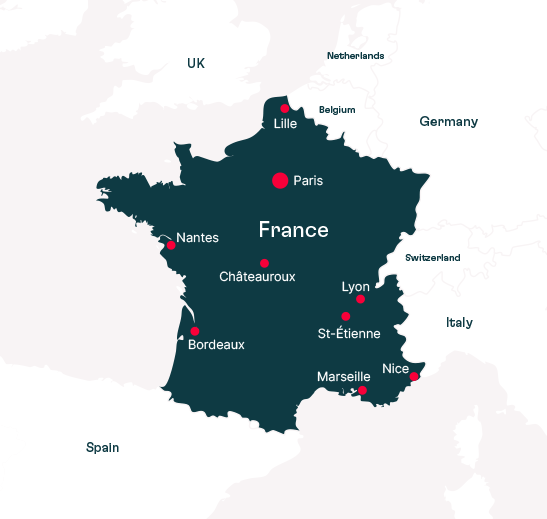
Matches will take place in 21 venues in nine cities:
- Paris
- Marseille
- Nice
- Lyon
- Saint-Etienne
- Bordeaux
- Nantes
- Lille
- Châteauroux
A century after first hosting the Summer Olympics in 1924, the Games are back in Paris for the 33rd Olympiad. Although Paris is already one of the most-visited cities in the world, the event is expected to attract 15 million spectators, many locals and domestic day trippers, and up to 3 million additional visitors in Paris.
Visas
Most non-EU travellers will need a visa to enter France. We recommend checking entry requirements via the official France Visa Portal. In addition to a valid visa, travellers from non-Schengen countries must be in possession of a passport issued less than 10 years ago and be valid for at least three months after the intended departure date.
Effective from 1 January 2024, France launched an online system to facilitate the visa applications of certain attendees to the Olympic and Paralympic Games. Travellers should consider delays in visa appointments and visa processing times due to the significant influx of visitors.
Travel requirements
Necessary documents for the visa application include:
- A passport valid for at least three months after the date of departure, which has been issued within the last 10 years and has two blank pages. Travellers should be aware that entry into France is also possible with a non-binary gender passport, or where gender is indicated as “Neutral” or “X”;
- Two passport-sized photos;
- Travel insurance with a minimum coverage plan of USD33,000;
- Flight itinerary;
- Accommodation proof and bank statements proving sufficient financial means, among other things.
Visitors must ensure their travel documents correspond to their authorised stay in the EU/Schengen zone.
For the first time in history, the Games will benefit overseas territories and their communities, with the Teahupo’o site in Tahiti to stage the Olympic surfing competition on one of the most beautiful beaches in the world. Travellers should ensure meeting the latest entry requirements of these destinations.
LGBTQ+ Travellers
Homosexuality is legal in France, and there are many legal protections for LGBTQ+ persons in the country. Same-sex marriage is legal and widely socially accepted so travellers are unlikely to face any difficulties or legal issues for travel.
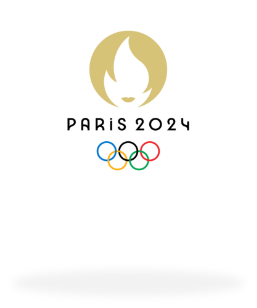
The Régie Autonome des Transports Parisiens (RATP) operates the Paris Metro, RER and tram and bus networks, while the state-owned railway company SNCF operates the Transilien commuter lines. Travellers are advised to download the RATP’s Next Stop Paris app, available in French, English, German, Italian, Spanish, Dutch, Japanese, Brazilian, Russian and Mandarin Chinese, for itineraries and maps. The price for Paris Metro tickets will almost double from July to September 2024. However, a special flat-rate pass for 16 Euros a day or 70 Euros a week during the games will be available for travel around Paris and its region, including Charles de Gaulle and Orly airports. During the Games, special platform announcements will be made in French, English, German, Spanish, Italian, Mandarin Chinese and Arabic; the RATP recommends downloading the TRAD.IV.IA app for live translation assistance as well.
All public transport operations will run at maximum capacity during the Games. Public transport access to competition venues will, however, be disrupted; in particular, the Champs‑Élysées‑Clemenceau, Concorde and Tuileries metro stations will all be closed.
The Vélib Metropole is the public bicycle network for Paris and the surrounding Ile-de-France region, with 1,464 stations. During the Games, each venue will be accessible through a protected cycling route.
Taxis in Paris are modern and well-maintained, with a good safety record. Unlicensed taxis are very rarely seen at airports. There are taxi hire and car rental desks near all arrival halls.
The Batobus is a shuttle boat that travels along the Seine, with nine stops in total at the city’s main attractions. You can get on and off as many times as you like and you can get a one-day pass for 23 Euros or a two-day pass for 27 euros.
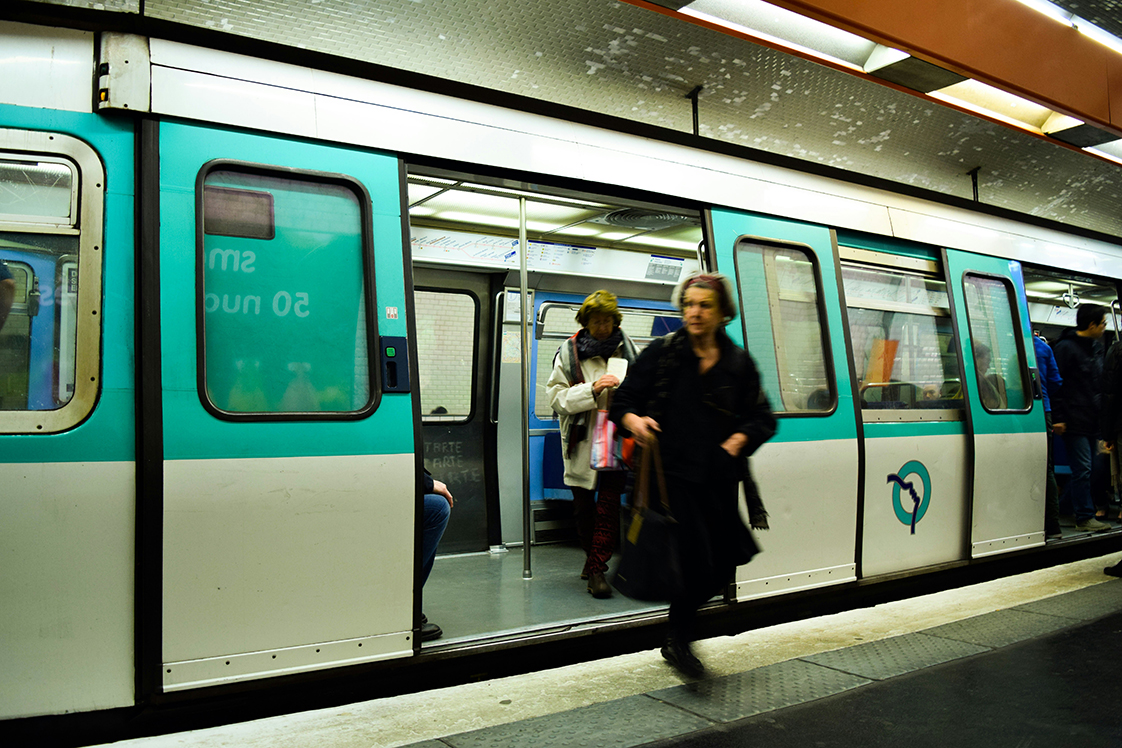
Multiple bus services connect Charles de Gaulle Airport with different points in Paris. Shuttle buses run from outside all three terminals to Place de l’Opera in Paris every 20 minutes. Air France runs coaches to Charles de Gaulle from Étoile and Montparnasse station in Paris. For transfers to Orly Airport, a shuttle bus runs from outside all terminals at Charles de Gaulle Airport; shuttle buses from Charles de Gaulle Airport are also available to Beauvais-Tillé Airport.
National train journeys during the Olympic and Paralympic Games will go on sale from February 2024 for group bookings (10 people and up) and from March 2024 for smaller groups and individuals.
A dedicated wheelchair spectator transfer service will be offered to persons with wheelchair tickets to a Paris 2024 competition venue and an accompanying person. These transfer services will connect all Île-de-France competition venues to the main stations in Paris. Bookings are currently open.
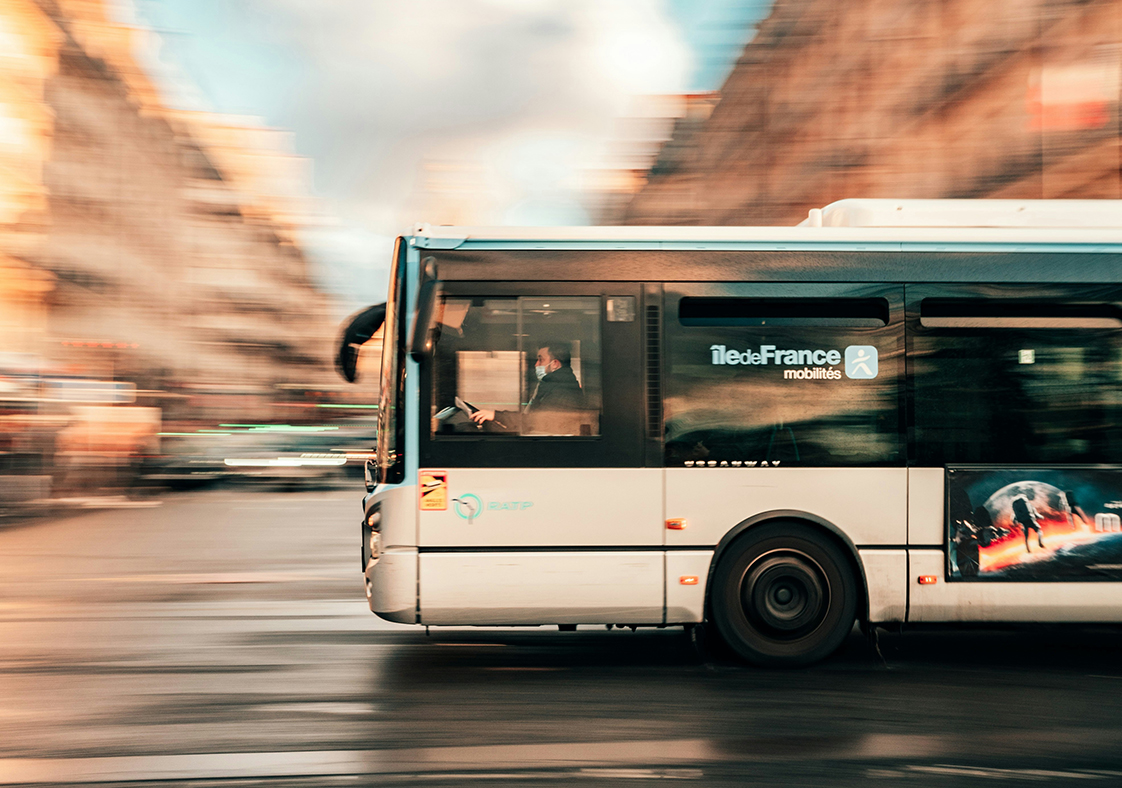
Paris’ largest airport is Charles de Gaulle International Airport (CDG/LFPG), located 23 kilometres (14 miles) northeast of Paris. It is the main hub for the national carrier, Air France, which will include direct daily routes from Paris Orly (ORY/LFPO) to the cities of Bordeaux-Mérignac (BOD/LFBD), Lille (LIL/LFQQ), Lyon Saint-Exupéry (LYS/LFLL), Marseille Provence (MRS/LFML), Nantes Atlantique (NTE/LFRS) and Nice Côte d’Azur (NCE/LFMN), where other events will be held during the 2024 Games.
Smaller airports serving the capital region include Orly Airport (ORY/LFPO), located 13 kilometres (eight miles) south of Paris, and Beauvais-Tillé Airport (BVA/LFOB), located 85 kilometres (53 miles) northwest of Paris.
A long-route connection to Faa’a International Airport (PPT/NTAA), located five kilometres (3.1 miles) southwest of Papeete in French Polynesia, where Olympic surfing events will take place at Teahupoʻo in Tahiti, will also take place.
Allow for additional travel time when arriving at and transiting all airports, as delays and queues are expected due to the volume of passengers going to and from the Games.

The Régie Autonome des Transports Parisiens (RATP) operates the Paris Metro, RER and tram and bus networks, while the state-owned railway company SNCF operates the Transilien commuter lines. Travellers are advised to download the RATP’s Next Stop Paris app, available in French, English, German, Italian, Spanish, Dutch, Japanese, Brazilian, Russian and Mandarin Chinese, for itineraries and maps. The price for Paris Metro tickets will almost double from July to September 2024. However, a special flat-rate pass for 16 Euros a day or 70 Euros a week during the games will be available for travel around Paris and its region, including Charles de Gaulle and Orly airports. During the Games, special platform announcements will be made in French, English, German, Spanish, Italian, Mandarin Chinese and Arabic; the RATP recommends downloading the TRAD.IV.IA app for live translation assistance as well.
All public transport operations will run at maximum capacity during the Games. Public transport access to competition venues will, however, be disrupted; in particular, the Champs‑Élysées‑Clemenceau, Concorde and Tuileries metro stations will all be closed.
The Vélib Metropole is the public bicycle network for Paris and the surrounding Ile-de-France region, with 1,464 stations. During the Games, each venue will be accessible through a protected cycling route.
Taxis in Paris are modern and well-maintained, with a good safety record. Unlicensed taxis are very rarely seen at airports. There are taxi hire and car rental desks near all arrival halls.
The Batobus is a shuttle boat that travels along the Seine, with nine stops in total at the city’s main attractions. You can get on and off as many times as you like and you can get a one-day pass for 23 Euros or a two-day pass for 27 euros.

Multiple bus services connect Charles de Gaulle Airport with different points in Paris. Shuttle buses run from outside all three terminals to Place de l’Opera in Paris every 20 minutes. Air France runs coaches to Charles de Gaulle from Étoile and Montparnasse station in Paris. For transfers to Orly Airport, a shuttle bus runs from outside all terminals at Charles de Gaulle Airport; shuttle buses from Charles de Gaulle Airport are also available to Beauvais-Tillé Airport.
National train journeys during the Olympic and Paralympic Games will go on sale from February 2024 for group bookings (10 people and up) and from March 2024 for smaller groups and individuals.
A dedicated wheelchair spectator transfer service will be offered to persons with wheelchair tickets to a Paris 2024 competition venue and an accompanying person. These transfer services will connect all Île-de-France competition venues to the main stations in Paris. Bookings are currently open.

Paris’s largest airport is Charles de Gaulle International Airport (CDG/LFPG), located 23 kilometres (14 miles) northeast of Paris. It is the main hub for the national carrier, Air France, which will include direct daily routes from Paris Orly (ORY/LFPO) to the cities of Bordeaux-Mérignac (BOD/LFBD), Lille (LIL/LFQQ), Lyon Saint-Exupéry (LYS/LFLL), Marseille Provence (MRS/LFML), Nantes Atlantique (NTE/LFRS) and Nice Côte d’Azur (NCE/LFMN), where other events will be held during the 2024 Games.
Smaller airports serving the capital region include Orly Airport (ORY/LFPO), located 13 kilometres (eight miles) south of Paris, and Beauvais-Tillé Airport (BVA/LFOB), located 85 kilometres (53 miles) northwest of Paris.
A long-route connection to Faa’a International Airport (PPT/NTAA), located five kilometres (3.1 miles) southwest of Papeete in French Polynesia, where Olympic surfing events will take place at Teahupoʻo in Tahiti, will also take place.
Allow for additional travel time when arriving at and transiting all airports, as delays and queues are expected due to the volume of passengers going to and from the Games.

Security Issues
Typically, the crimes which often target foreign travellers in Paris are mostly petty crimes like pickpocketing, theft of valuables and bag-snatching. Locations most susceptible to such opportunistic crimes include highly-trafficked tourist spots like the Eiffel Tower, Notre Dame, the Champs-Elysées, Saint-Michel, the Bastille and the Centre Pompidou/Châtelet/Les Halles. Organised gangs of pickpockets, including children, have also often targeted tourists at the Louvre. Pickpocketing and theft also frequently occur at public transportation hubs. Do not carry large amounts of cash; keep credit cards in a concealed pocket or pouch rather than a bag. Avoid overt displays of wealth and be aware of your surroundings.
Violent crimes do occasionally occur. There have been some reports of armed robberies and assaults at major tourist attractions such as the Champs-Elysees, the Louvre and Palais Royal, Les Halles, the Latin Quarter and Gare du Nord, as well as on RER train lines linking the city centre to the suburbs late at night. The 19th arrondissement suffers from higher rates of crime fuelled by gang activity. Other suburbs with instances of armed robberies and assaults are Saint-Denis, Aubervilliers, Saint-Ouen, Pigalle, Barbès-Rochechouart, Stalingrad, Montmartre, Rue Saint-Denis (2nd arrondissement) and the Bois de Boulogne and Bois de Vincennes. Avoid travelling alone in these areas after dark; remain vigilant.
There are unlicensed taxis, ATM scams, credit card fraud, identity theft and other criminal schemes, such as people impersonating police officers and fining tourists for false minor offences or fraudulent petitioners collecting money for false causes.
These frauds occur most frequently at outdoor tourist sites and attractions, and transport hubs like airports and rail stations. Criminals may work alone or in a group, and often use various techniques to attract and fraud potential victims.
Do not engage in encounters with operators including street hawkers, asking for money or personal information that cannot be confirmed as official or licensed. When exchanging currency or drawing cash at ATMs, opt for banks with indoor space. Regularly check bank statements, and promptly seek police or consular assistance when targeted by fraudsters.
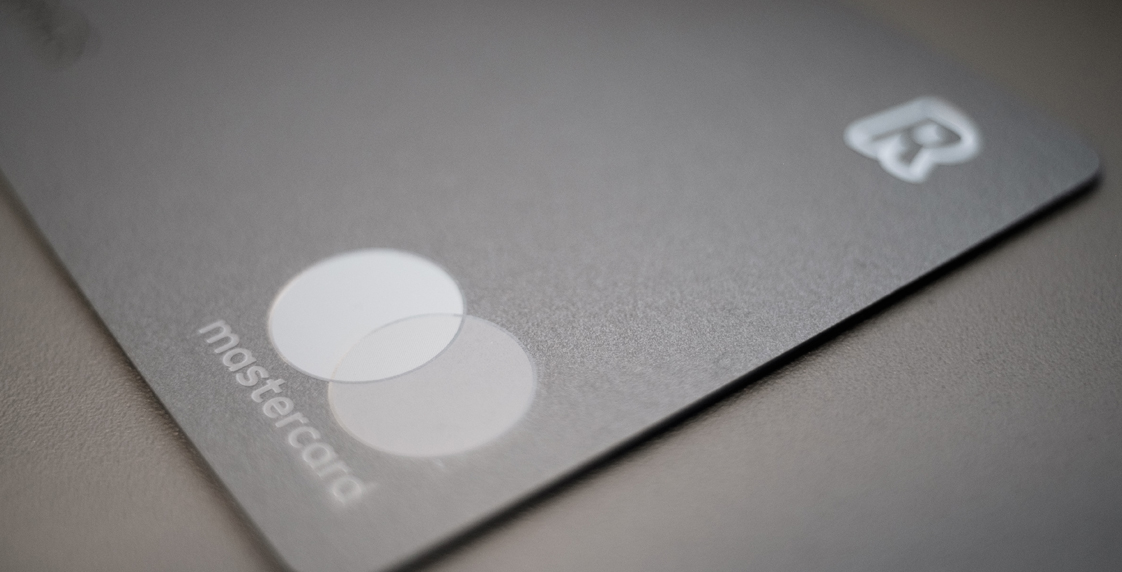
The Paris Police Prefecture maintains a strong presence across the city and officers are generally reliable, cooperative and courteous.
Owing to this high level of professionalism, visitors are unlikely to encounter corruption, such as the solicitation of bribes. The Paris Police Prefecture operates 24/7 reception points, including 20 central district police stations.
Police officers’ English skills can vary. Bilingual police officers with national flags on their badges indicating the language(s) they speak are stationed at multiple police stations. Complaints can be filed with the police in 30 languages, including English, several European languages, Mandarin Chinese, Korean, Japanese, Hebrew and Turkish.
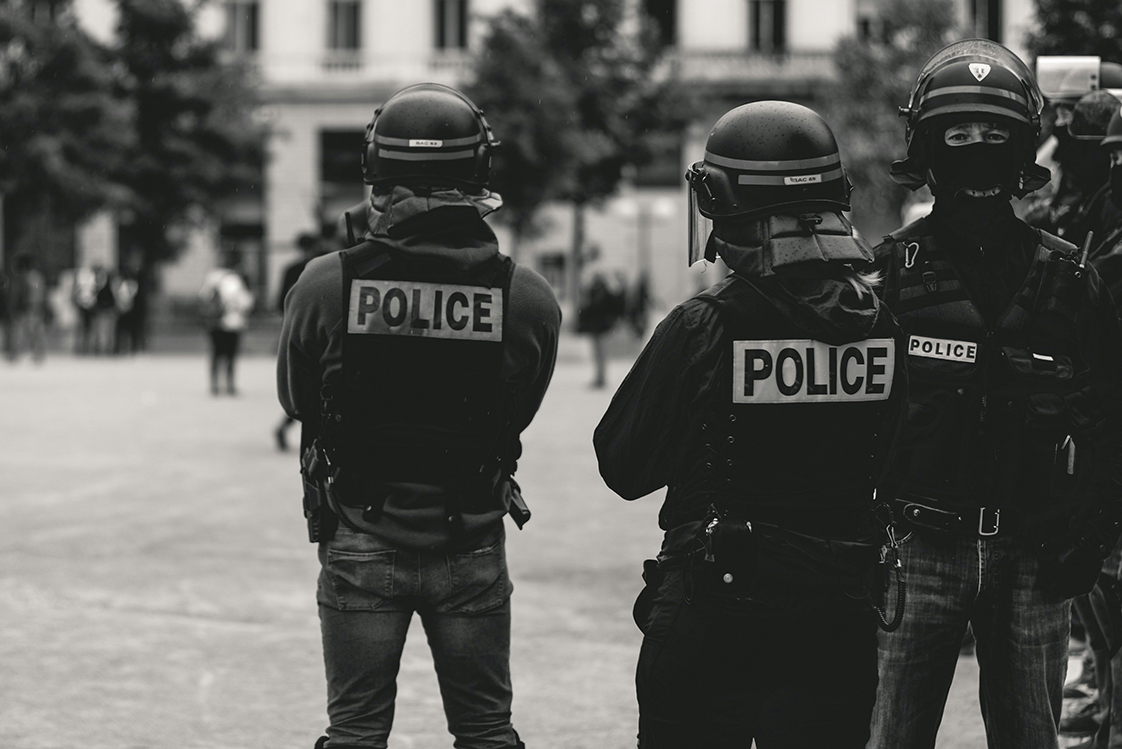
Although the Games are said to be free of hooliganism, confrontations between fans of rival national teams cannot be ruled out, especially in relation to global political developments. While a heavy police presence may help deter and intervene promptly in violent situations, clashes could erupt in public with little to no warning, resulting in potential incidental harm to bystanders.
Authorities plan to ban liquor at venues hosting the competitions as part of measures to prevent alcohol-fuelled crimes like hooliganism. Security perimeters around competition venues will also be established during the Games to ensure the safety of spectators, athletes and residents.
Exercise caution, especially around large groups of fans and around major transport hubs.
Avoid unruly crowds, as police will use heavy-handed measures, including baton charges and tear gas, and resort to arrests to break up any suspected incidents of hooliganism. Seek shelter at signs of unrest.
While no overt threats have been made against the Paris 2024 Olympics as of this writing, the high-profile event will be attended by several million spectators and represents a prime target for Islamic State (IS) and al-Qaeda affiliated militant groups, as well as ‘lone wolf’ radicalised individuals inspired by them.
Since 2014, militant attacks in France have killed 265 people and injured nearly 1,210, with the deadliest on 13 November 2015, claimed by IS, being a series of shootings and suicide attacks in and around Paris, killing 130 people and injuring 413 others.
During the Games, nearly 20,000 military personnel will be mobilised, and the density of CCTV surveillance cameras and their monitoring will also be reinforced, including the introduction of algorithmic video surveillance in high-density areas.
Visitors are advised to remain vigilant at all times, particularly in crowded areas and near all places of worship and religious community centres, and report all suspicious items/behaviour to authorities.
Typically, the crimes which often target foreign travellers in Paris are mostly petty crimes like pickpocketing, theft of valuables and bag-snatching. Locations most susceptible to such opportunistic crimes include highly-trafficked tourist spots like the Eiffel Tower, Notre Dame, the Champs-Elysées, Saint-Michel, the Bastille and the Centre Pompidou/Châtelet/Les Halles. Organised gangs of pickpockets, including children, have also often targeted tourists at the Louvre. Pickpocketing and theft also frequently occur at public transportation hubs. Do not carry large amounts of cash; keep credit cards in a concealed pocket or pouch rather than a bag. Avoid overt displays of wealth and be aware of your surroundings.
Violent crimes do occasionally occur. There have been some reports of armed robberies and assaults at major tourist attractions such as the Champs-Elysees, the Louvre and Palais Royal, Les Halles, the Latin Quarter and Gare du Nord, as well as on RER train lines linking the city centre to the suburbs late at night. The 19th arrondissement suffers from higher rates of crime fuelled by gang activity. Other suburbs with instances of armed robberies and assaults are Saint-Denis, Aubervilliers, Saint-Ouen, Pigalle, Barbès-Rochechouart, Stalingrad, Montmartre, Rue Saint-Denis (2nd arrondissement) and the Bois de Boulogne and Bois de Vincennes. Avoid travelling alone in these areas after dark; remain vigilant.
There are unlicensed taxis, ATM scams, credit card fraud, identity theft and other criminal schemes, such as people impersonating police officers and fining tourists for false minor offences or fraudulent petitioners collecting money for false causes.
These frauds occur most frequently at outdoor tourist sites and attractions, and transport hubs like airports and rail stations. Criminals may work alone or in a group, and often use various techniques to attract and fraud potential victims.
Do not engage in encounters with operators including street hawkers, asking for money or personal information that cannot be confirmed as official or licensed. When exchanging currency or drawing cash at ATMs, opt for banks with indoor space. Regularly check bank statements, and promptly seek police or consular assistance when targeted by fraudsters.

The Paris Police Prefecture maintains a strong presence across the city and officers are generally reliable, cooperative and courteous.
Owing to this high level of professionalism, visitors are unlikely to encounter corruption, such as the solicitation of bribes. The Paris Police Prefecture operates 24/7 reception points, including 20 central district police stations.
Police officers’ English skills can vary. Bilingual police officers with national flags on their badges indicating the language(s) they speak are stationed at multiple police stations. Complaints can be filed with the police in 30 languages, including English, several European languages, Mandarin Chinese, Korean, Japanese, Hebrew and Turkish.

Although the Games are said to be free of hooliganism, confrontations between fans of rival national teams cannot be ruled out, especially in relation to global political developments. While a heavy police presence may help deter and intervene promptly in violent situations, clashes could erupt in public with little to no warning, resulting in potential incidental harm to bystanders.
Authorities plan to ban liquor at venues hosting the competitions as part of measures to prevent alcohol-fuelled crimes like hooliganism. Security perimeters around competition venues will also be established during the Games to ensure the safety of spectators, athletes and residents.
Exercise caution, especially around large groups of fans and around major transport hubs.
Avoid unruly crowds, as police will use heavy-handed measures, including baton charges and tear gas, and resort to arrests to break up any suspected incidents of hooliganism. Seek shelter at signs of unrest.
While no overt threats have been made against the Paris 2024 Olympics as of this writing, the high-profile event will be attended by several million spectators and represents a prime target for Islamic State (IS) and al-Qaeda affiliated militant groups, as well as ‘lone wolf’ radicalised individuals inspired by them.
Since 2014, militant attacks in France have killed 265 people and injured nearly 1,210, with the deadliest on 13 November 2015, claimed by IS, being a series of shootings and suicide attacks in and around Paris, killing 130 people and injuring 413 others.
During the Games, nearly 20,000 military personnel will be mobilised, and the density of CCTV surveillance cameras and their monitoring will also be reinforced, including the introduction of algorithmic video surveillance in high-density areas.
Visitors are advised to remain vigilant at all times, particularly in crowded areas and near all places of worship and religious community centres, and report all suspicious items/behaviour to authorities.
In the event of an emergency, or if you are the victim of a crime, immediately contact local authorities on-site, or through one of the appropriate numbers below. It is also advisable to contact your home country’s consular office to inform them of the problem. Share your itinerary details with a trusted family member, friend or colleague who is not travelling prior to departure for France.
Emergency Numbers
- European Emergency Hotline: 112
- Police: 17
- Fire: 18
- Ambulance: 15
- Emergencies (hearing impaired – accessible via SMS, chat, video or fax): 114
There are no specific rules that women should take into consideration in Paris. Familiarise yourself with your destination prior to travel, and be respectful and mindful of any possible political and cultural sensitivities, which may include behaviour and topics of discussions.
There are minimal safety concerns for female travellers in France. However, there have been a few instances of gender-based violence and harassment in crowded public spaces, such as transportation hubs, tourist attractions and event venues in Paris; foreign female travellers face no greater risk than locals.
Some instances of sexual assaults or harassment have been reported on public transport, especially on the Metro at night. Champ de Mars, at the base of the Eiffel Tower, has been the site of some recent cases of sexual assault at night. Female travellers are cautioned against walking alone at night around the Pigalle, Barbès-Rochechouart, Rue de Rivoli, Stalingrad, Montmartre and Rue Saint-Denis.
While these risks exist, France has adequate laws in place to prosecute perpetrators of sexual violence and provide assistance to survivors. Visitors to Paris can mitigate these risks by staying aware of their surroundings, sticking to well-lit areas, avoiding walking alone at night, trusting their instincts and being cautious when socialising or consuming alcohol. Travellers are advised to familiarise themselves with local emergency numbers and support resources in case of need. Police and emergency services maintain a high degree of professionalism, and female travellers are unlikely to encounter any problems when dealing with first responders or reporting crimes to local authorities. Those intending to report any incidents can do it at the nearest police station and should do so as soon as possible after an attack.
Women have access to high-quality healthcare in Paris, including a full range of gynaecological and reproductive health services, medicines and products. These include rape-kits, specialised clinics, abortion services, over-the-counter (OTC) emergency contraceptives, prescription contraceptives and a full variety of feminine hygiene products.
Abortions are allowed during the first 14 weeks of pregnancy and during later stages under special circumstances and with the approval of a commission. Several English-speaking facilities are available across the city. High-quality prescription drugs are widely available, and infectious diseases present little to no risk to travellers.
There are minimal safety concerns for female travellers in France. However, there have been a few instances of gender-based violence and harassment in crowded public spaces, such as transportation hubs, tourist attractions and event venues in Paris; foreign female travellers face no greater risk than locals.
Some instances of sexual assaults or harassment have been reported on public transport, especially on the Metro at night. Champ de Mars, at the base of the Eiffel Tower, has been the site of some recent cases of sexual assault at night. Female travellers are cautioned against walking alone at night around the Pigalle, Barbès-Rochechouart, Rue de Rivoli, Stalingrad, Montmartre and Rue Saint-Denis.
While these risks exist, France has adequate laws in place to prosecute perpetrators of sexual violence and provide assistance to survivors. Visitors to Paris can mitigate these risks by staying aware of their surroundings, sticking to well-lit areas, avoiding walking alone at night, trusting their instincts and being cautious when socialising or consuming alcohol. Travellers are advised to familiarise themselves with local emergency numbers and support resources in case of need. Police and emergency services maintain a high degree of professionalism, and female travellers are unlikely to encounter any problems when dealing with first responders or reporting crimes to local authorities. Those intending to report any incidents can do it at the nearest police station and should do so as soon as possible after an attack.
Women have access to high-quality healthcare in Paris, including a full range of gynaecological and reproductive health services, medicines and products. These include rape-kits, specialised clinics, abortion services, over-the-counter (OTC) emergency contraceptives, prescription contraceptives and a full variety of feminine hygiene products.
Abortions are allowed during the first 14 weeks of pregnancy and during later stages under special circumstances and with the approval of a commission. Several English-speaking facilities are available across the city. High-quality prescription drugs are widely available, and infectious diseases present little to no risk to travellers.
Paris is one of the most LGBTQ+ friendly destinations in Europe. Le Marais in the 4th arrondissement is colloquially known as the city’s ‘gay’ neighbourhood due to the many queer bars, clubs and cafés.
The general social acceptance of LGBTQ+ people in France is among the highest in the world, with Paris being home to one of the world’s largest pride parades, the Marche des Fiertés, attracting around half a million people annually.
The state has legalised same-sex marriages and allowed gay couples the right to a joint adoption. Despite the state legally allowing transgender people to change their gender identity without sex reassignment surgery, non-binary gender identities are still not legally recognised. People with non-binary gender markers (e.g. intersex, X and gender non-conforming) selected in their identification or travel documents may face some difficulties when accessing certain services.
France offers broad legal protections against anti-LGBTQ+ discrimination, with plenty of laws protecting queer people based on gender identity and sexual orientation. This includes a ban on conversion therapy practices, which was passed by the National Assembly on 31 January 2022. Other similar laws include the protection against discrimination in healthcare as well as the provision of goods and services.
For the most part, the risk of anti-LGBTQ+ discrimination is low across the country. However, travellers should still exercise some caution when engaging in public displays of affection, especially when not in LGBTQ+ friendly areas. Individuals who have experienced anti-LGBTQ+ violence may consult SOS Homophobie or other similar non-profit organisations in France that provide legal help.
People with non-binary gender markers may face some difficulties when accessing certain services.
Staying Safe
As the 2024 Summer Olympics (Paris 2024) approach in Paris, there is a looming potential for protests across a spectrum of issues. These may encompass concerns such as pension reform, immigration law, escalating energy prices, environmental concerns, the Israel-Hamas and Russian-Ukraine conflicts and grievances voiced by unionised workers and anti-establishment Yellow Vests (gilets jaunes). Anticipated to occur both before and during the Games, these demonstrations have the potential to cause disruptions for travellers.
The primary focus of anticipated protests during Paris 2024 is likely to revolve around working conditions and the allocation of resources for hosting the event, with some unionised workers already making public their plans to strike and demonstrate. Notably, law enforcement officers have also issued a warning that they may go on strike during the event if their demands are not addressed, potentially causing disruptions in airport services and significantly compromising security throughout the event.
Throughout 2023, a number of protests unfolded on several fronts, encompassing various concerns, including outside the Paris 2024 Headquarters at the Le Pulse Building in Saint-Denis. Visitors are urged to exercise caution and refrain from attending or venturing into areas with heightened security forces or ongoing demonstrations, as there is a potential risk of incidental violence.
Law enforcement officers may go on strike during the event if their demands are not addressed.
Travellers visiting Paris during the Olympics are unlikely to face any major issues with regard to local laws and customs. However, there are certain etiquette and laws that visitors should keep in mind. Polite greetings and interactions are a part of daily life in the country and visitors are expected to be respectful; certain social behaviours are commonly practised, such as stepping aside to let passengers alight before boarding a metro train or a bus, and offering seats to those who require it more. Kissing on the cheek is a widely followed form of greeting. Tipping at restaurants is largely voluntary and generally not expected.
It is illegal in France to not offer some form of assistance to a person who appears to be in danger; however, it does not apply to instances where assisting may endanger the responder’s life. Travellers also need to be aware of the country’s secular laws; the government has passed legislation banning the wearing of conspicuous religious symbols in schools, and the wearing of full-face veils, including the niqab or burqa, in all public places. This has been a divisive topic in France and it is best to avoid it during conversations. It is also advisable to avoid discussing the government, regional secessionist movements or any negative comments about the country.
All citizens and foreign travellers to France must carry photographic identification at all times. Visitors are advised to ensure that all travel and identification documents are in order.
Travellers visiting Paris during the Olympics are unlikely to face any major issues with regard to local laws and customs. However, there are certain etiquette and laws that visitors should keep in mind. Polite greetings and interactions are a part of daily life in the country and visitors are expected to be respectful; certain social behaviours are commonly practised, such as stepping aside to let passengers alight before boarding a metro train or a bus, and offering seats to those who require it more. Kissing on the cheek is a widely followed form of greeting. Tipping at restaurants is largely voluntary and generally not expected.
It is illegal in France to not offer some form of assistance to a person who appears to be in danger; however, it does not apply to instances where assisting may endanger the responder’s life. Travellers also need to be aware of the country’s secular laws; the government has passed legislation banning the wearing of conspicuous religious symbols in schools, and the wearing of full-face veils, including the niqab or burqa, in all public places. This has been a divisive topic in France and it is best to avoid it during conversations. It is also advisable to avoid discussing the government, regional secessionist movements or any negative comments about the country.
All citizens and foreign travellers to France must carry photographic identification at all times. Visitors are advised to ensure that all travel and identification documents are in order.
Rising temperatures as well as increased traffic in Paris in recent years have increased air pollution levels in the city during the summer months. A similar trend can be expected during Paris 2024. Smoke from wildfires in areas near or around Paris, which are typical during the summer, can also affect air quality. The city is susceptible to smog during high pollution levels which can affect road visibility and travel conditions. When pollution levels are high, visitors can anticipate traffic restrictions, including a ban on movement of vehicles except those equipped with a class 0, 1 or 2 Crit’Air label. This is likely to increase the demand for public transport. Maximum authorised speed limits may also be reduced during this period. For at-risk travellers or when levels of pollution are very high (>300 PM2.5 rating), the use of a suitable and properly-worn ‘N95’ respirator face mask is recommended.

The Summer Olympics will take place during the apex of the temperature seasonal cycle in Paris. The capital is the most vulnerable in Europe when it comes to heat waves. Tens of thousands of visitors are susceptible to potential thermoregulation issues from heat stress to heatstroke, which is marked by cramps, nausea, vomiting, headaches, malaise and breathing difficulties. Infants, young children and adults aged 65 or older are at greatest risk of suffering heat-related illness. Mitigation strategies include limiting outdoor activity to early morning and late evening hours, ensuring access to water points and shaded areas, increasing non-alcoholic fluid intake, regular application of sunscreen and wearing lightweight, light-coloured, loose-fitting clothing and hats that allow perspiration. Immediate on-site intervention is crucial to regulate core temperature before an evacuation to an emergency facility.
There are no known travel restrictions related to COVID-19 or any other illnesses, but wearing a face mask is recommended if COVID-19 infections or other respiratory illnesses spike during the summer months in Paris. If having fever or difficulty breathing, consult a health professional.
Officials in mid-2022 stepped up health surveillance measures at airports nationwide when Mpox cases were on the rise. While Mpox cases have since declined, visitors should be aware of the risk. Symptoms include severe headache, fever, back pains and large rashes. Seek medical attention if you have been exposed to an infected person.
In late November 2023, authorities also elevated the nationwide bird flu risk level from moderate to high, after at least four outbreaks were reported on turkey farms. While no human cases have been reported, visitors should take necessary precautions. Avoid live animal markets, free-ranging or caged poultry and dead migratory birds in affected areas.
Travellers should also be aware of periodic strikes by healthcare workers, especially doctors in both public and private sectors over consultation rates. During healthcare strikes, consult physicians/clinics for possible rebooking of appointments.
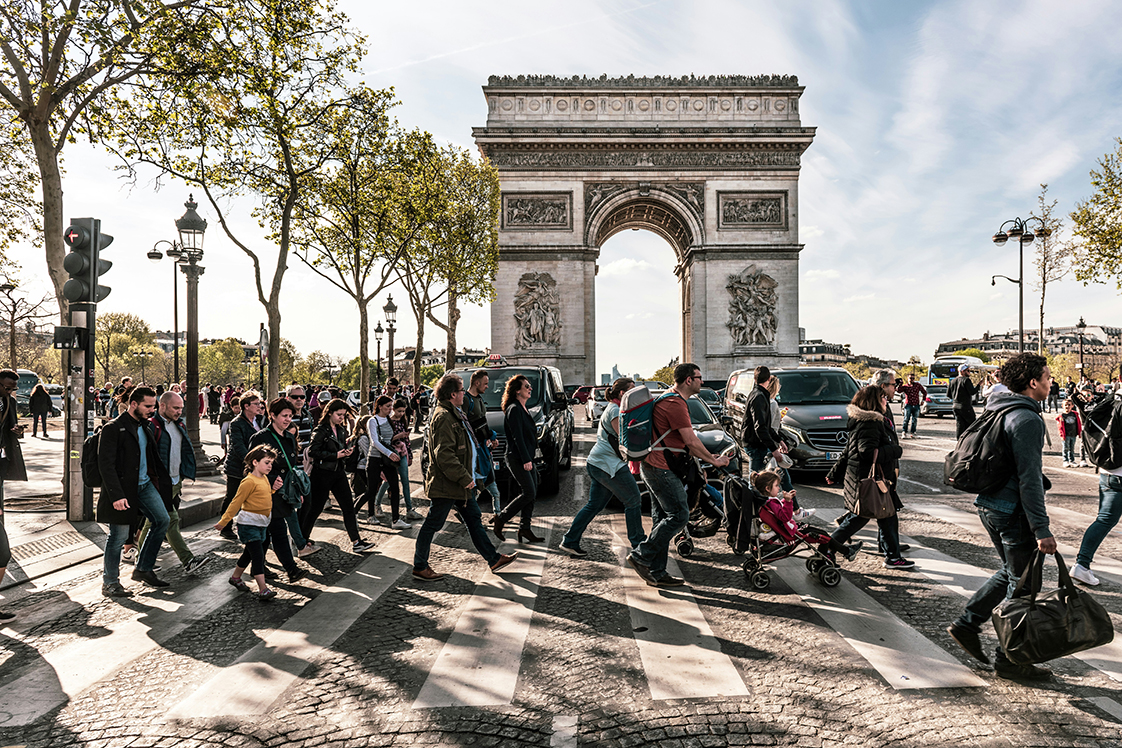
Rising temperatures as well as increased traffic in Paris in recent years have increased air pollution levels in the city during the summer months. A similar trend can be expected during Paris 2024. Smoke from wildfires in areas near or around Paris, which are typical during the summer, can also affect air quality. The city is susceptible to smog during high pollution levels which can affect road visibility and travel conditions. When pollution levels are high, visitors can anticipate traffic restrictions, including a ban on movement of vehicles except those equipped with a class 0, 1 or 2 Crit’Air label. This is likely to increase the demand for public transport. Maximum authorised speed limits may also be reduced during this period. For at-risk travellers or when levels of pollution are very high (>300 PM2.5 rating), the use of a suitable and properly-worn ‘N95’ respirator face mask is recommended.

The Summer Olympics will take place during the apex of the temperature seasonal cycle in Paris. The capital is the most vulnerable in Europe when it comes to heat waves. Tens of thousands of visitors are susceptible to potential thermoregulation issues from heat stress to heatstroke, which is marked by cramps, nausea, vomiting, headaches, malaise and breathing difficulties. Infants, young children and adults aged 65 or older are at greatest risk of suffering heat-related illness. Mitigation strategies include limiting outdoor activity to early morning and late evening hours, ensuring access to water points and shaded areas, increasing non-alcoholic fluid intake, regular application of sunscreen and wearing lightweight, light-coloured, loose-fitting clothing and hats that allow perspiration. Immediate on-site intervention is crucial to regulate core temperature before an evacuation to an emergency facility.
There are no known travel restrictions related to COVID-19 or any other illnesses, but wearing a face mask is recommended if COVID-19 infections or other respiratory illnesses spike during the summer months in Paris. If having fever or difficulty breathing, consult a health professional.
Officials in mid-2022 stepped up health surveillance measures at airports nationwide when Mpox cases were on the rise. While Mpox cases have since declined, visitors should be aware of the risk. Symptoms include severe headache, fever, back pains and large rashes. Seek medical attention if you have been exposed to an infected person.
In late November 2023, authorities also elevated the nationwide bird flu risk level from moderate to high, after at least four outbreaks were reported on turkey farms. While no human cases have been reported, visitors should take necessary precautions. Avoid live animal markets, free-ranging or caged poultry and dead migratory birds in affected areas.
Travellers should also be aware of periodic strikes by healthcare workers, especially doctors in both public and private sectors over consultation rates. During healthcare strikes, consult physicians/clinics for possible rebooking of appointments.

Contributions by:
Getting Around: Claudia Gualdi, Diego Maloney, Lorena Peña and Lorenzo Trevisan
Traveller Advice: Bumjoon Park, Farhan Rafi, Marco Túlio Lara, Nikita Billier, Ramya DilipKumar and Roxana Dumitrescu
Staying Safe: Aidana Arynbek, Avantika Deb, Bumjoon Park, Eeva Ruuska, Patricia Baruffi and Ramya DilipKumar
